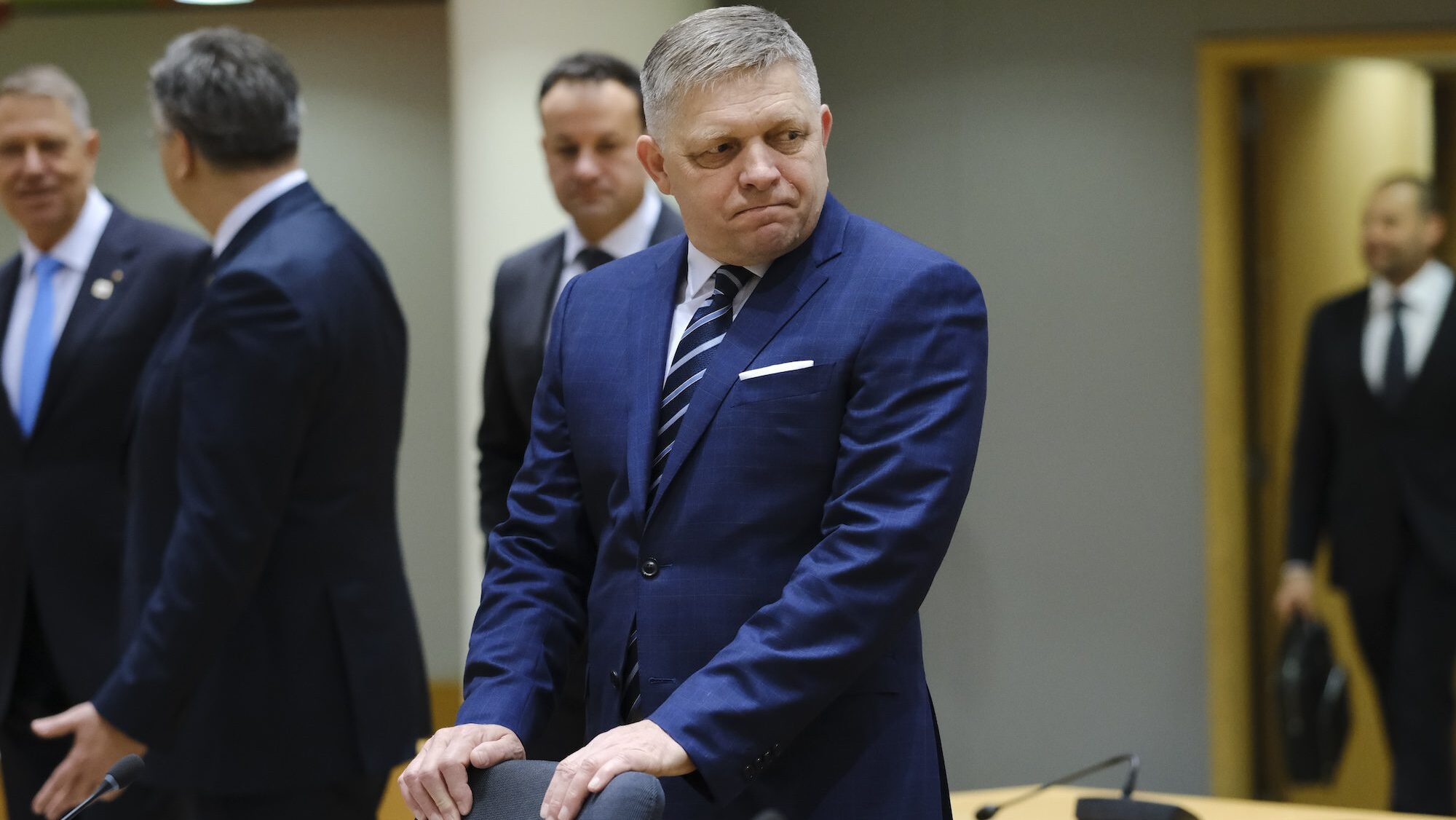
Slovak PM Robert Fico.
Photo: © European Union
The European Union executive branch, the European Commission, is preparing to punish Slovakia’s sovereigntist government for its alleged violations of the rule of law, according to stories appearing in Slovak media and Bloomberg.
If the plan moves forward, the country would become the third EU member state, after Poland and Hungary, whose funds are frozen as a punishment for going against Brussels’ mainstream ideological lines.
By bringing ‘lawfare’ into its dealings with nations that elect conservative governments, Brussels continues to combine intolerance with punitive pressures for conformity in domestic policy.
The move was reportedly triggered by PM Robert Fico’s decision to abolish the country’s Special Prosecutor’s Office back in March, which was responsible—among other roles—for investigating corruption.
Although Bloomberg’s insider sources suggest that the process is still at quite an early stage, there are already two separate proposals on the table, waiting for Commission President Ursula von der Leyen’s approval.
The first option would involve triggering the EU’s conditionality mechanism through Article 7, leading to a suspension of parts of the country’s €13 billion worth of cohesion funds.
The second option would take a slightly different route and, instead of regular funding, would freeze Slovakia’s share of the EU’s jointly borrowed pandemic relief funds, up to its entire €2.7 billion.
Since roughly 80% of Slovakia’s public investments are financed by EU funds, any such punishment would be a serious blow to the country’s economy, which is already burdened by a huge public deficit.
Various EU institutions and politicians have been calling for using the conditionality mechanism against Slovakia for months, especially because of reforms in the penal code, overhauling the country’s public broadcaster RTVS, proposing a law that would label foreign-funded NGOs as such, and, most recently, planning to ban promoting gender ideology in schools.
The Special Prosecutors’ Office was closed down as part of the penal reforms, and the government justified the move by saying that the institute—created just years prior by the previous administration—was essentially under the control of the opposition and was regularly weaponized against politicians belonging to the governing parties.The European Commission was already considering freezing part of the country’s pandemic relief funds in early summer, but eventually decided to release the last tranche of over €900 million in July and let Bratislava off with a “warning.”
